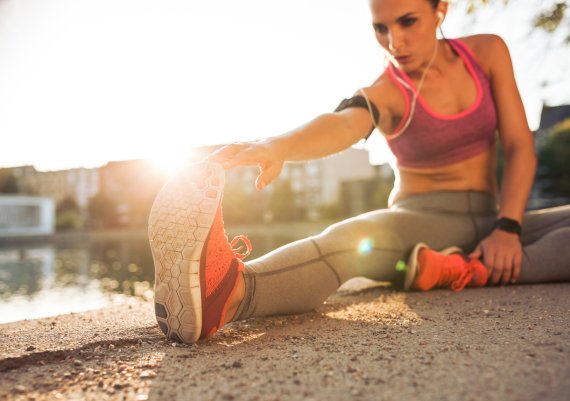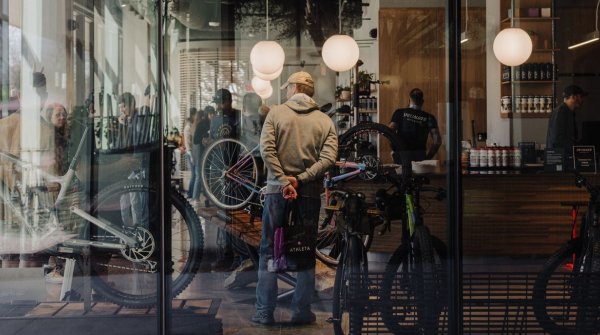
When asked about the most important criteria for a successful partnership in influencer marketing, bloggers most often named five points:
- Mutual appreciation
- Agreements at eye level
- Long-term partnerships and brand fit
- Appropriate payment
- Exclusive experiences and events
Bloggers and influencers from the fitness, lifestyle, and outdoor sports sectors who all address their followers on at least two platforms had their say. Instagram is the definite number one, followed by the classic blog and YouTube channel. Among them are lifestyle bloggers like Linda, Julia, Rebecca, and Caroline, whose posts are regularly being read and liked by thousands of people. In the outdoor segment, the Munich Mountain Girls set standards in the field of outdoor & women, while (trail) running fans are enthusiastic about Cindy and Marlen. YouTube is a popular channel for skiing and freeriding. That’s why creators like Tobias of AlpineFex spend so much time on high-quality videos.
There are a lot of bloggers, vloggers, and influencers in the web. Therefore, the question of the so-called brand fit pops up at the beginning of every cooperation. Once that is determined, it’s about identifying the right bloggers.
Influencers, bloggers, vloggers, spokespeople, multipliers, or social creators? From a brands perspective, it may not seem particularly important at first glance, but in fact there’s a first possible pitfall hidden behind the various designations, which could decide whether a cooperation is successful or not.
The excessive term ‘influencer’ in particular is a thorn in the side of the ‘influencers’ themselves, because it has become a very negative, almost devaluing connotation, as Linda and Julia Breuing, who call themselves (social) content creators, confirm.
The foundation of a good partnership therefore is build up by mutual appreciation, and this starts with an adequate job title, especially if multipliers are full-time professionals.
The desire for precise agreements and communication at eye level is a similar notch. A partnership with bloggers is a business relationship and should be dealt with the same seriousness as with any other service provider, customer, or partner. This includes a contract, or at least defined general conditions by e-mail or Post-It. That simplifies life for both parties, says Marlen of Trail Kitchen, adding, “If brands just send a jacket with the vague request ‘Just do something with it,’ it won’t help anybody.” For Fabiola, good coordination in advance is also the foundation for constructive feedback, which in turn is essential for renewed good cooperation.
Here today, gone tomorrow. The prejudice that bloggers would change brands (underpants) like a leaf in the wind is very rarely confirmed. Lifestyle blogger Rebecca considers herself a brand ambassador for the products she advertises, which she is committed to, and emphasizes: “That kind of positive cooperation comes off when brands approach me that apparently know what and who represents the channel, and aren’t just dazzled by a high follower rate.”
Micro-bloggers like Cindy are also observing this development: “Now we’re being taken just as seriously by big brands as by our 100.000 followers, because the companies realize that they have almost no scattering loss with us.” Micro-bloggers are therefore attractive for brands with a smaller budget, or can be seen as a starting point.
Speaking of budgets – yes, the money does tend to flow. For the simple reason that (full-time) bloggers can’t pay their rent and bills with jackets and pants. Jules of the Munich Mountain Girls puts it in a nutshell: “Nobody needs five jackets. Much more important is joint brainstorming and adequate implementation, which is then remunerated according to effort and working hours. In this context, Caroline Kynast admits that not every post is scaled in long-term partnerships, and that she sometimes makes an exception for fitting partners who might have a small budget.
Last but not least, events and insights are interesting equivalents for bloggers. Killian is still raving about an unpaid partnership with a beverage manufacturer that gave him exclusive access to the Special Olympics. Rebecca of Pineapple and Pumps calls these kinds of benefits, in which she also renounces classical payment, “horizon expanding.”
In addition to exclusive experiences, events where influencers can exchange information with each other also play a role. Since 2017, this has also included the ISPO Blogger Lounge, which is growing year by year and becoming the industry get-together within the industry get-together.
In summary, it can be said that bloggers/brand ambassadors/influencers want to be treated like every partner in business life. Negotiation is allowed, but price dumping or fobbing off with products won’t lead to long-term success.
 Sports BusinessThe future of the bike industry: 6 innovative bike stores
Sports BusinessThe future of the bike industry: 6 innovative bike stores
- ISPO awards
- Mountain sports
- Bike
- Design
- Retail
- Fitness
- Health
- ISPO Job Market
- ISPO Munich
- ISPO Shanghai
- Running
- Brands
- Sustainability
- Olympia
- OutDoor
- Promotion
- Sports Business
- ISPO Textrends
- Triathlon
- Water sports
- Winter sports
- eSports
- SportsTech
- OutDoor by ISPO
- Heroes
- Transformation
- Sport Fashion
- Urban Culture
- Challenges of a CEO
- Trade fairs
- Sports
- Find the Balance
- Product reviews
- Newsletter Exclusive Area
- Magazine



